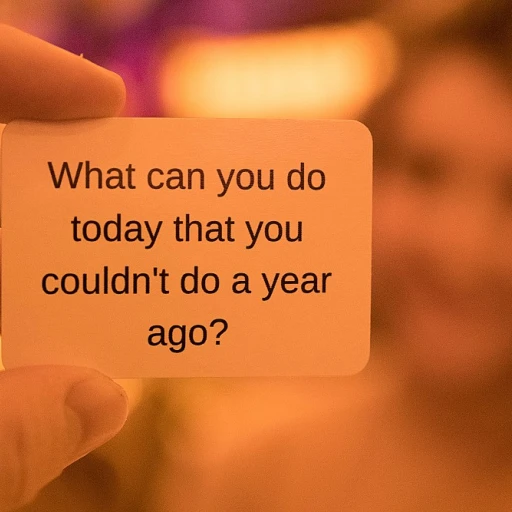
Understanding the unique expectations of catholic school interviews
What Sets Catholic School Interviews Apart
When preparing for a teaching interview in a Catholic school, it’s important to understand that the process goes beyond the standard questions asked in other schools. Catholic schools often look for teachers who not only have strong classroom management strategies and relevant experience, but also demonstrate passion for the school’s mission and values. This means your answers should reflect both your teaching skills and your willingness to support the spiritual and moral development of students.
Interview questions in these settings may focus on how you integrate faith into your teaching, your approach to fostering a respectful classroom environment, and your ability to work collaboratively with other teachers and staff. Practicing answers to common questions about your experience and teaching philosophy will help you feel more confident and prepared.
- Expect questions interview panels may not ask elsewhere: For example, you might be asked how you would handle a classroom discussion about faith or how you would support the school’s religious activities.
- Demonstrate alignment with the school’s values: Good examples from your previous work or teaching experience can show your commitment to the school’s mission.
- Highlight your skills and experience: Be ready to discuss successful teaching moments, classroom management strategies, and how you address the needs of diverse learners.
While preparing, review the school’s website and mission statement. This will help you tailor your answers and show that you are genuinely interested in being part of their community. For more interview tips and strategies that can boost your confidence, check out this resource on mastering coaching interview questions.
Core competencies sought in 3rd grade catholic school teachers
Key Qualities That Make a Difference in Catholic School Classrooms
When preparing for teaching interviews at a Catholic school, it’s important to understand the core competencies that set successful teachers apart. Interview questions often focus on more than just your teaching experience—they dig into your ability to nurture both academic and spiritual growth in students. Here are some of the most valued skills and qualities:- Classroom management strategies: Schools look for teachers who can create a respectful, organized, and engaging learning environment. Be ready to share examples of how you handle disruptions, encourage participation, and maintain a positive classroom culture.
- Demonstrating passion for teaching: Interviewers appreciate candidates who show genuine enthusiasm for working with children and a commitment to their holistic development. Practicing answers that reflect your motivation and dedication will help you stand out.
- Alignment with Catholic values: Teachers are expected to integrate faith-based principles into their lessons and daily interactions. Good answers often include examples of how you incorporate values like compassion, service, and respect into your teaching.
- Relevant experience: Schools value teachers who have experience working with diverse learners and adapting instruction to meet individual needs. Prepare to discuss your background and provide examples of successful teaching moments.
- Collaboration and communication: The ability to work effectively with colleagues, parents, and the wider school community is essential. Interview questions may focus on your teamwork skills and how you contribute to a supportive school environment.
Common Questions and How to Prepare
During teaching interviews, you can expect questions that focus on both your professional skills and your ability to embody the mission of the school. Here are some common questions asked in Catholic school interviews:- How do you integrate faith and values into your classroom teaching?
- Can you share examples of experience managing challenging classroom situations?
- What strategies do you use to support students with different learning needs?
- How do you demonstrate passion for teaching and inspire your students?
- What does it mean to you to be a role model in a Catholic school setting?
Sample interview questions for 3rd grade teacher catholic school pdf
Common Interview Questions and How to Prepare
When applying for a 3rd grade teaching position in a Catholic school, preparing for the interview is crucial. Interviewers often ask a mix of questions to assess your teaching skills, classroom management strategies, and alignment with the school's values. Practicing answers to common questions will help you feel more confident and demonstrate your passion for teaching.
- Why do you want to teach in a Catholic school?
Good answers highlight your understanding of the school's mission and your commitment to faith-based education. Share examples from your experience that show your respect for Catholic values and community. - How do you integrate faith and academics in your classroom?
Interviewers look for teachers who can blend religious teachings with academic content. Give examples of activities or lessons where you have incorporated faith-based themes. - Describe your classroom management strategies.
Successful teaching relies on effective classroom management. Discuss specific techniques you use to create a positive, respectful environment. Mention how you handle challenges and encourage good behavior. - How do you differentiate instruction for diverse learners?
Schools value teachers who can adapt lessons for students with different needs. Share examples of how you modify assignments or use various teaching methods to support all students. - Tell us about a time you worked with parents or guardians to support a student.
Interview questions often focus on collaboration. Provide examples of how you communicate with families and involve them in the learning process. - How do you assess student progress?
Be ready to discuss both formal and informal assessment methods. Explain how you use data to guide your teaching and help students grow. - What would you do if a student consistently disrupts the class?
Scenario-based questions like this test your problem-solving skills. Offer practical steps you would take, emphasizing fairness and compassion.
Practicing answers to these questions will help you feel prepared and confident. Consider reviewing mastering the onboarding process for additional insights on what HR may expect after a successful interview.
Tips for Practicing and Answering Effectively
- Use specific examples from your teaching experience to support your answers.
- Focus on how your skills and values align with the Catholic school’s mission.
- Prepare for scenario-based questions by reflecting on past challenges and successful teaching moments.
- Practice your answers out loud or with a friend to build confidence.
- Be honest about your experience and willing to discuss areas for growth.
By preparing thoughtful answers and demonstrating your passion for teaching, you will make a strong impression during your interview. Remember, interviewers are looking for teachers who not only have the right skills but also embody the values of their school community.
How to demonstrate alignment with catholic values during interviews
Showcasing Your Commitment to Catholic Values
When preparing for teaching interviews at a Catholic school, it’s essential to demonstrate how your experience and approach align with the school’s mission and values. Interviewers often look for answers that reflect a genuine understanding of Catholic education and a passion for nurturing both academic and spiritual growth in students.- Connect your teaching philosophy: Share examples of how your classroom management strategies and lesson planning incorporate respect, compassion, and service. These are core values in Catholic schools and will help you stand out as a candidate who understands the unique environment.
- Use relevant experience: When answering interview questions, reference specific situations where you’ve promoted inclusivity, kindness, or ethical decision-making. For example, describe a time you encouraged students to resolve conflicts peacefully or supported a class service project.
- Highlight your role as a model: Catholic schools seek teachers who serve as role models. Give examples of how you demonstrate integrity and faith in your daily work, even if your previous experience was outside a Catholic setting.
Tips for Integrating Faith and Learning in Your Answers
Interviewers may ask questions focused on how you would integrate faith into your teaching. Practicing answers to common questions like, “How do you incorporate Catholic teachings into your classroom?” will help you respond with confidence. Good answers often include:- Describing how you use scripture or prayer to start the day or address classroom challenges
- Explaining how you connect lessons to Catholic social teachings, such as justice and stewardship
- Sharing examples of experience with school-wide liturgies, retreats, or service opportunities
Demonstrate Passion and Authenticity
Schools value teachers who are enthusiastic about their mission. Let your passion for teaching and Catholic education show in your answers. Use specific examples from your work or volunteer experience that highlight your commitment to fostering a supportive, faith-filled environment. This approach will help you make a strong impression and show you are a good fit for the school community. Remember, successful teaching interviews in Catholic schools are not just about your skills or classroom management. They are about how well you embody the values and spirit of the school. Practicing answers to questions teacher candidates commonly face, and reflecting on your own journey, will help you prepare for a successful interview.Tips for answering scenario-based questions effectively
Approaching Scenario-Based Interview Questions with Confidence
Scenario-based questions are a staple in teaching interviews, especially in catholic schools. These questions focus on your ability to handle real classroom situations, demonstrate good judgment, and apply your teaching experience to support students and uphold school values. Here are some practical tips answering these questions effectively:- Understand the Intent: Scenario questions interview your problem-solving and classroom management strategies. Interviewers want to see how you apply your skills and experience to common challenges teachers face.
- Use the STAR Method: Structure your answers using Situation, Task, Action, and Result. This approach helps you give clear, concise examples of experience that highlight your successful teaching moments.
- Connect to Catholic Values: When preparing, think about how your answers can reflect the mission and values of catholic schools. For example, if asked about handling conflict, mention how you would encourage respect and compassion among students.
- Showcase Relevant Experience: Draw from your past work in classrooms, even if you are new to catholic schools. Good examples include managing diverse classrooms, adapting lessons for different learning needs, or collaborating with other teachers.
- Demonstrate Passion and Professionalism: Let your enthusiasm for teaching and commitment to student growth come through in your answers. Schools look for teachers who are not only skilled but also genuinely care about their students’ well-being.
Common Scenario-Based Questions and How to Prepare
Practicing answers to common questions asked in teaching interviews will help you feel more confident. Here are some typical scenario-based interview questions:- How would you handle a disruptive student in your classroom?
- Describe a time you adapted your teaching for a student with special needs.
- What would you do if a parent disagreed with your teaching methods?
- How do you integrate faith and values into your daily teaching?
- Give an example of how you foster a positive, inclusive classroom environment.
What HR looks for beyond the resume in catholic school interviews
Looking Beyond the Resume: What Sets Candidates Apart
When preparing for HR job interviews in catholic schools, it’s important to remember that your resume is just the starting point. HR professionals and interview panels are looking for more than just a list of qualifications and previous teaching experience. They want to see how you bring your skills and values into the classroom and school community. Here are some key areas they focus on during interviews:
- Demonstrating Passion for Teaching: Interviewers often ask questions that help them gauge your enthusiasm for working with students and your commitment to education. Sharing examples of successful teaching moments or how you’ve inspired students can make your answers stand out.
- Alignment with School Values: Catholic schools place a strong emphasis on values and mission. Be ready to discuss how your personal beliefs and teaching philosophy align with the school’s ethos. Practicing answers to questions about faith integration or community involvement will help you show genuine alignment.
- Classroom Management Strategies: Good teachers are expected to handle diverse classroom situations. Prepare examples of experience where you used effective management strategies, and be ready to answer scenario-based questions that focus on your approach to discipline, inclusion, and creating a positive learning environment.
- Communication and Collaboration: HR looks for teachers who can work well with colleagues, parents, and students. During the interview, provide examples of how you’ve contributed to a team, resolved conflicts, or communicated important information clearly.
- Reflective Practice: Schools value teachers who are willing to learn and grow. Be prepared to discuss how you reflect on your teaching, seek feedback, and adapt your methods. Sharing tips for answering questions about professional development or lessons learned from challenges will help demonstrate your commitment to continuous improvement.
In summary, successful teaching interviews in catholic schools go beyond common questions about qualifications. Practicing answers that highlight your passion, values, and real classroom examples will help you stand out. Remember, HR is looking for teachers who not only have the right experience but also demonstrate the ability to contribute positively to the school community.













